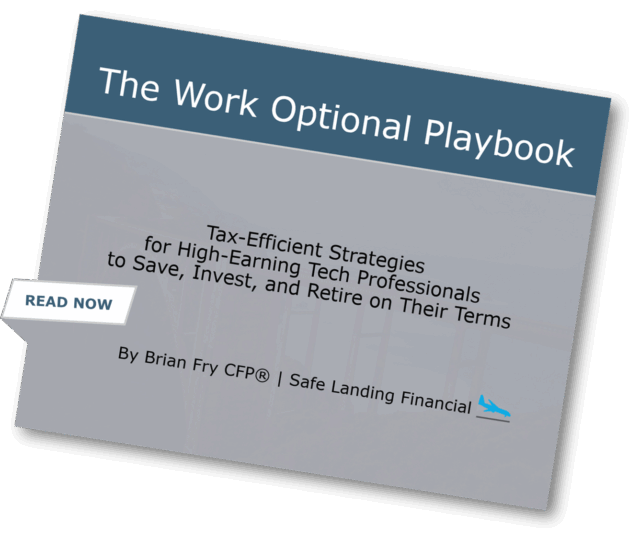Financial New Year’s Resolutions for 2019

As a Los Angeles fee-only financial planner, I am focused on making sure my clients are prepared financially for 2019. According to a Fidelity Investments Study, one in three Americans plan to make a financial New Year’s resolution for 2019. With an 18% increase from the 2018 study, Americans are getting serious about improving their overall financial picture. Whether you are living in Los Angeles, CA or Austin, TX, here are six financial New Year’s resolutions from a Los Angeles financial planner to give you more peace of mind in the new year.
2019 Financial New Year’s Resolution
Create a Budget
Your budget should be taking into consideration after-tax income, basic expenses, discretionary expenses and a savings plan.
After-Tax Income
Start by projecting your after-tax income. After-tax income is net income after the deduction of all federal, state, and withholding taxes.
Expenses
What are your regular basic expenses to attain your standard of living? Work on eliminating any high-interest debt before thinking about discretionary spending or a savings plan. What are your additional expenses to maintain your lifestyle? This is likely the area that needs to be refined within your budget to be able to effectively save for your financial goals.
Savings Plan
Most financial planners recommend saving 10-15% of your income. I recommend saving at least until reaching the match for the employer retirement account [401(k), 403(b), 457 and Thrift Savings Plan (TSP)] and maxing out individual retirement account (IRA) and health savings account (HSA) contributions. Additional funds should be saved or spent after considering your financial goals. If you plan to use the money to fund your financial goals in the next year, consider short-term cash alternatives such as savings, CDs, or money-market funds. For funding financial goals two to five years away, consider a short-term fixed income strategy in a taxable account. For long-term goals, focus on your objective and time horizon to determine the appropriate investment allocation and if the investment should be in a taxable or tax-deferred account.
Build an Emergency Fund
Building an emergency fund is important for planning for the unknown such as a layoff or unforeseen medical expenses. This money should be set aside in cash alternatives and not tied into risky assets. It’s impossible to predict the how volatility will impact the ups and downs of your daily portfolio balance. If you are more than five years away from retirement, I recommend building your emergency funds to at least three months of living expenses. If you are five years away from retirement, build an emergency fund that covers at least six months of living expenses. If you’re within one year of retirement or in retirement, build your emergency fund to cover one year of living expenses.
Track Your Credit Score
Your credit score is a reflection of how your credit reports appear. It’s important to make sure your credit score is accurately forecasted. If the credit score is lower than expected, there may be errors that need to be disputed with the credit bureaus. By tracking your credit score regularly, you will qualify for better products and interest rates. Many credit cards and banks offer this service complimentary. You can also track your credit score through the three credit bureaus.
Optimize Your Portfolio
Track your asset allocation to your financial plan. Implement a rebalancing strategy that you can stay accountable to. Learn more about building a rebalancing strategy.
Prepare for the Unexpected
Make goals this year to prepare for the unexpected. Determine if you have the appropriate life, disability and long-term care insurance plans. Evaluate your health benefits covered through your current insurance plan. Research your home, auto and umbrella insurance policies to limit any potential gaps. Make sure you are paying an appropriate rate and policies are covered from a high-rated provider. Learn more about insurance planning services.
Protect Your Estate
Protect your legacy in the event of your passing. Review and update your beneficiaries, living will, living trust, power of attorney documents and health care directives. With the estate tax laws changing, irrevocable trusts may not be as beneficial as they have been in the past. Consult with a fee-only financial planner or estate planning attorney to make sure you are appropriately covered. Learn more about estate planning services.
For More:
What is a fiduciary financial advisor?
Learn more about comprehensive financial planning
Learn more about financial planning services
Learn more about retirement planning services
Learn more about investment management service
CNBC: Should you max out your 401(k) or IRA at the beginning of the year?
Los Angeles, CA Fee-Only Financial Planner
Still have questions for getting on track to start the new year? Meet with a Los Angeles fee-only financial planner in-person or virtually online.
by Brian Fry CFP®
Safe Landing Financial is a Los Angeles, CA fee-only financial advisor providing financial planning, retirement planning and investment management to tech professionals and pre-retirees. When you work with Safe Landing Financial, you work with Brian Fry, a fiduciary and CERTIFIED FINANCIAL PLANNER™ that puts clients’ best interests first. Financial planning services include: retirement planning, charitable giving, asset protection, estate planning, saving for college, debt management, tax strategy and investment management. Safe Landing Financial serves as a virtual fee-only financial advisor to individuals and families nationwide.


